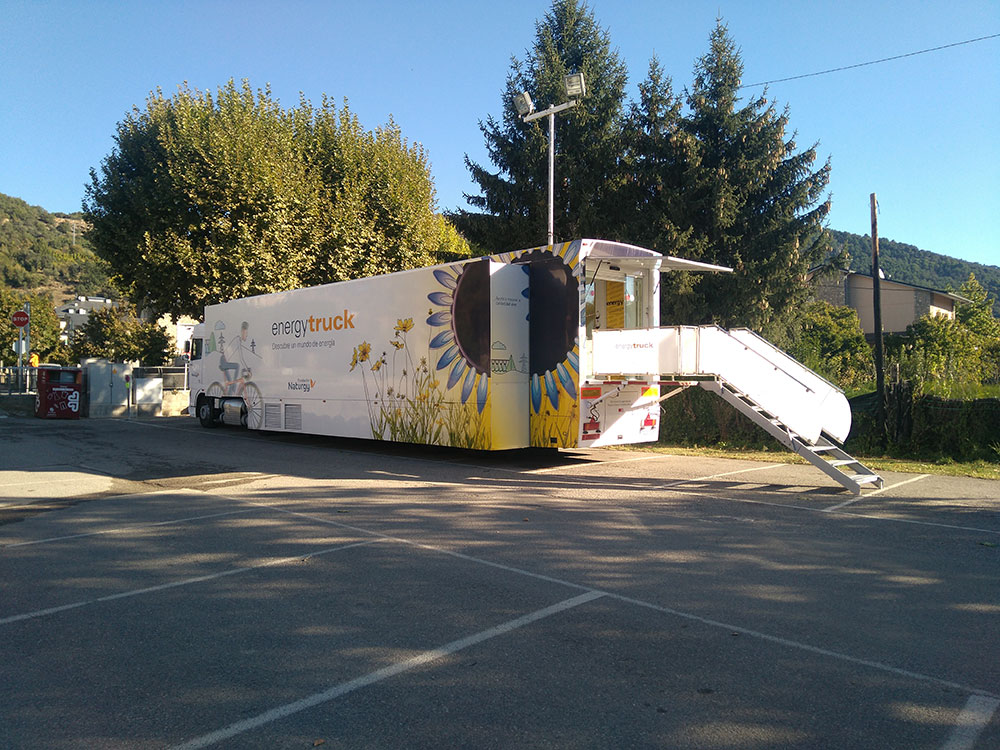The Energytruck, the Naturgy Foundation travelling exhibition about energy, reaches La Seu d’Urgell for the XI Special Olympics in Catalonia
The Naturgy Foundation is collaborating on this sporting event to make its social and cultural action accessible to all groups in society.
The Energytruck, a large sustainable truck, offers a visual and interactive introduction to what energy is and how we can consume it responsibly.

The Naturgy Foundation travelling exhibition about energy reaches La Seu d’Urgell this week to celebrate the XI Special Olympics in Catalonia. The organisation is collaborating on this inclusive sporting event to make its social and cultural action accessible to all groups in society. The Energytruck will be in the Plaza de los Oms tomorrow and can be visited between 9 am and 2 pm. From Friday to Sunday it will be located on the Paseo de Joan Brudieu, on the corner with Lluís de Sabater. On 5 and 6 October it can be visited from 10 am to 2 pm and from 4 pm to 8.30 pm, and on Sunday 7 October from 10 am to 12 pm.
Since it started in January 2016, the travelling exhibition has travelled over 53,000 kilometres and visited 295 municipalities throughout Spain to inform the general public about energy, the environment and industrial heritage in a fun and interactive way through educational activities run by specialist educators. Around 175,700 people have visited the exhibition, 67,600 of which are primary and secondary school students, as well as vocational training students.
A large sustainable truck with extensive technological equipment
The truck is equipped with a natural gas twin engine that produces between 15 % and 20 % less CO2 than conventional diesel engines. Through a dual system and a fuel consumption of approximately 70 % diesel and 30 % compressed natural gas, the vehicle contributes to improved air quality by reducing emissions of particles by 39 % and NOx emissions by 30 %, compared to a diesel-only vehicle.
The 70-square-metre mobile exhibition boasts a wide range of technological equipment, including audio-visual, interactive and multimedia content, as well as information panels. Visitors will be able to experiment with the content through practical activities centred around them. The project also includes workshops and educational activities led by specialised educators, who will share their knowledge of science and technology. The activities, which are free, are suitable for all ages and adapted for people with disabilities.
Share